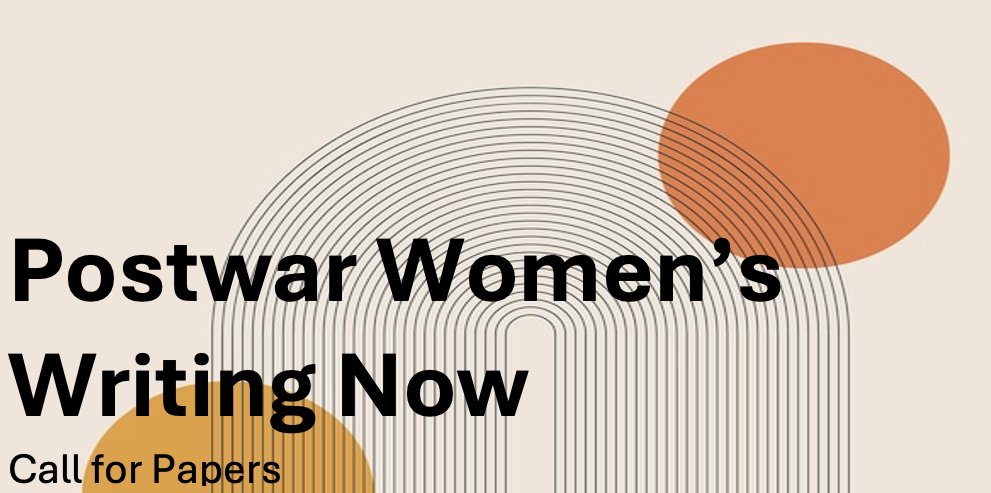Posts from November 2025
University of Westminster, 2 May 2026
Over the last fifteen years or so, postwar women novelists, particularly those who wrote innovative fiction, have been bought back into contemporary literary culture. Writers such as Ann Quin, Anna Kavan, Brigid Brophy and Christine Brooke-Rose have been the subject of conferences, of journal articles and of monographs. They have also begun to gather attention outside of academia, and have been featured in newspaper articles, radio programmes, and podcasts. Many of these writers have been republished, and their books now appear on the front tables of bookshops, rather than being available only second hand. Some critics have read the return to these writers as a revival of the work of recovery carried out during the second wave of feminism, in particular by publishers such as Virago. Joanna Scutts wrote in 2019 that the current rediscovery of 20th century women writers is ‘a revival of an older form of feminist activism, on the part of publishers, editors, and critics, to find women writers and make their work available to a new readership’. But there has also been circumspection about the motives behind this ‘recovery’. In the London Review of Books in 2024, Sophie Smith suggested that that forgetting – the basis of the trope of recovery – ‘is a useful – and exculpatory – frame for patriarchy. But it is also a boon to capitalism.’
Postwar Women’s Writing Now will ask about our interest in these writers now. Underlying the day will be two broad questions: Why these writers? And why now? In framing the discussion with these questions, it hopes to scrutinise questions of academic fashion, publishing, the determinants of literary culture, and feminist theory and practice. While being framed by these questions, papers on a range of questions and writers are sought, including but not limited to the following:
- A number of writers have dominated recent returns to the postwar decades, but others have not so far been included in that return. Who are these writers, why have they not been included, and what might be at stake in their return?
- What does the return of postwar women writers to literary significance suggest about the relation between academic literary studies and wider literary culture?
- What is the role of contemporary publishing in this return? How has it inflected it?
- What is the role of the archive in the rediscovery of women novelists?
- Biography has long been a difficult question in the critical appreciation of women writers. How has the biographical both spurred and hindered the contemporary return to these writers?
- What can the 21st century return to these writers in particular tell us about the valence of recovery as a model?
- Is the trope of feminist recovery still useful in the 21st century?
- Sarah Brouillette has recently written that ‘the real economy has an absolutely foundational structuring role in transformations in the fate of the literary as a set of affects and dispositions’. How has contemporary economics shaped and inflected our return to postwar women writers?
- During the time of revival of interest in these writers, experimental writing in English by contemporary women writers has also had something of a boom. Writers such as Claire-Louise Bennett, Isabel Waidner, Danielle Dutton and Joanna Walsh have all written about their relation as writers to, for example, Ann Quin and Anna Kavan. What is the relation between contemporary writers and the postwar women writers?
- How do curricula choices shape contemporary literary culture?
- Is the idea of a ‘tradition’ of women’s writing useful when considering more innovative or experimental writing?
Please send abstracts of up to 500 words to Carole Sweeney (c.sweeney@gold.ac.uk), Victoria Walker (victoria-walker@outlook.com) and Leigh Wilson (l.wilson@westminster.ac.uk) by 31 January 2026.
Wednesday, November 5 · 4:30 – 6pm
University of Westminster, 309 Regent Street, London, Room 357
The Professional Writer in the 21st Century
Katie da Cunha Lewin (Coventry University)
In a moment where humanities departments are ransacked, and governments openly espouse their prioritisation of STEM subjects and the rights of AI companies, the lure of the life of the writer seems somehow to endure. This is illustrated most obviously in the proliferation of creative writing courses, both within and without the institution. These courses, regardless of their form, all engage in some way or another with issues of professionalising, with learning not only how to write, but also how to be a writer, particularly as universities are encouraged to make their courses linked with or formed by ‘industry.’ However, these notions of professionalism (and inversely amateurism) are complicated by the ways that popular and best-selling writers discuss the profession itself. Using case studies of Zadie Smith and Sally Rooney, I want to think about how both writers harness ideas of ‘love’ as part of their public writerly identity, and thereby help shape public perception of what it means to be a writer in the 21st century.


The Institute for Modern and Contemporary Culture
University of Westminster Department of English, Linguistics and Cultural Studies
32-38 Wells Street, London W1T 3UW. United Kingdom.

